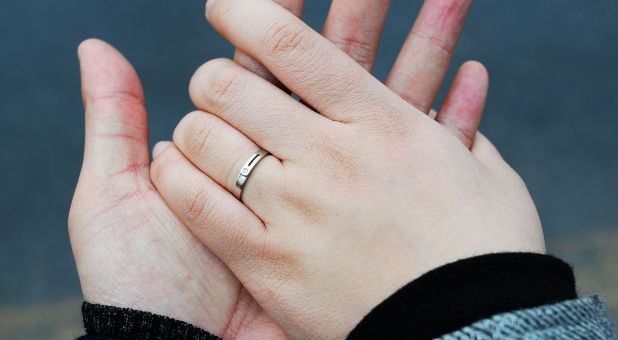Poll: Legal Same-Sex Marriage Is Inevitable in US
The gay agenda is clearly making headway from many angles. And as public policy continues to change on the issue, a LifeWay Research poll shows 58 percent of American adults agree it is a civil rights issue and 64 percent believe it is inevitable same-sex marriage will become legal throughout the United States.
LifeWay Research conducted a wide-ranging survey of American adults on questions surrounding same-sex marriage; specifically examining whether clergy, wedding photographers, rental halls, landlords and employers have the right to refuse access and services to same-sex couples, even if same-sex marriage is made legal in their state.
According to the findings:
- 63 percent agree and 27 percent disagree that pastors should be allowed to refuse to officiate same-sex weddings if they are made legal in their state
- 58 percent agree and 33 percent disagree that photographers should be allowed to refuse to work same-sex weddings if they are made legal in their state
- 40 percent agree and 52 percent disagree that rental halls should be allowed to refuse to rent out their facilities for same-sex weddings if they are made legal in their state
- 27 percent agree and 67 percent disagree landlords should be allowed to refuse to rent housing to same-sex couples if same-sex marriage is made legal in their state
- 14 percent agree and 82 percent disagree employers should be allowed to refuse employment to someone, based on their sexual preference
“Clearly, Americans believe the prerogative exists for individuals such as clergy or photographers to deny services for same-sex marriage,” said Ed Stetzer, president of LifeWay Research. “However, the level of agreement changes with scenarios that could be interpreted as more basic rights such as housing and employment.”
Consistent in all scenarios of the survey, men are more likely than women to agree that these individuals should have the right to refuse services, rental agreements or employment—as are Americans calling themselves “born-again, evangelical or fundamentalist Christian.”
While Americans calling themselves “born-again, evangelical or fundamentalist Christian” are most likely to agree that pastors (74 percent), photographers (72 percent) and rental halls (57 percent) should be able to refuse same-sex involvement, the level of agreement is much lower concerning landlords (39 percent) and employers (19 percent).
Additional demographic breakdown of the LifeWay Research study shows:
- Americans in the Northwest (31 percent) and West (36 percent) are more likely to disagree than those in the Midwest (22 percent) and South (23 percent) that pastors should be allowed to refuse to officiate same-sex weddings.
- Americans age 65 and older are more likely to agree (37 percent) that landlords should be allowed to refuse to rent housing to same-sex couples.
- Americans who attend religious services one or more times a week are most likely to agree (22 percent) that employers should be allowed to refuse employment, based on sexual preference and that landlords should be allowed to refuse to rent housing to same-sex couples (41 percent).
Inevitable Change
While 64 percent of Americans agree same-sex marriage will become legal in the United States, 25 percent disagree and 12 percent “don’t know.” The survey reveals Americans in the West (72 percent) are more likely to agree than those in the Midwest (57 percent) that legality is inevitable. Sixty-one percent of Southerners agree. Those calling themselves “born-again, evangelical or fundamentalist Christian” are less likely to agree (50 percent) and more likely to disagree (38 percent) that this will happen.
The survey shows women (61 percent), Americans with a college degree (65 percent), and those age 18-29 (65 percent) are more likely to agree that homosexuality is a civil rights issue like gender, race and age.
“While a majority of Americans categorize homosexuality as a civil rights issue like age, race and gender, and almost two-thirds think legalization of same-sex marriage in the U.S. is inevitable, the research does show lines and divisions on these issues clearly exist in our country,” Stetzer said.















































